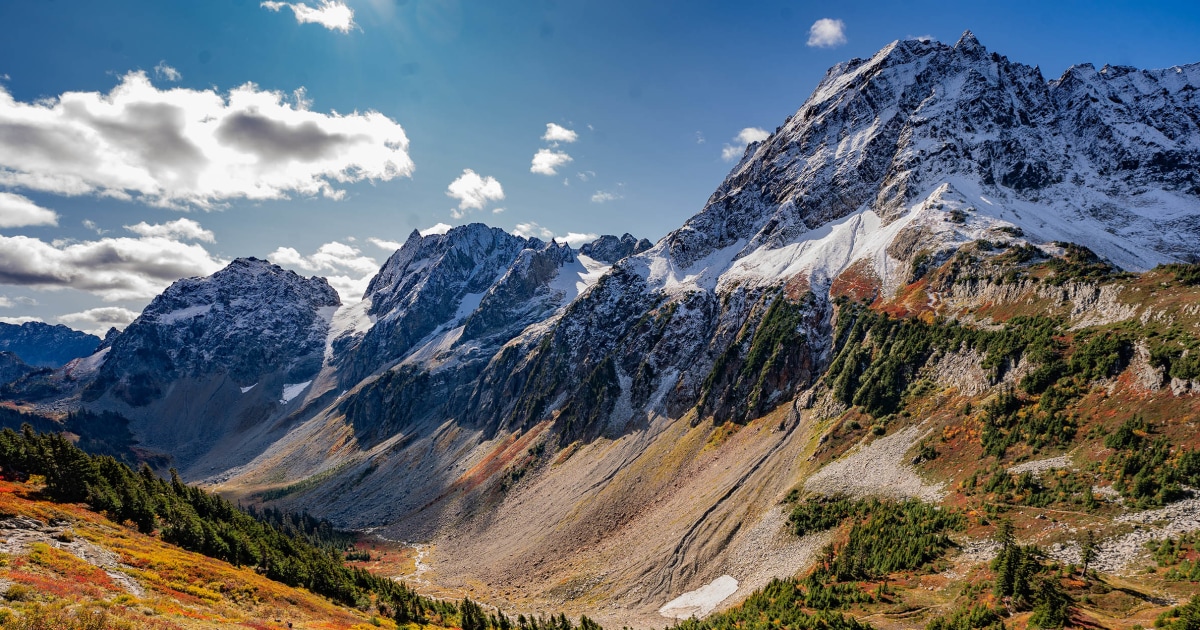Tragedy Strikes: Three Lives Lost in North Cascades Climbing Accident
Three climbers perished in a devastating fall while ascending a treacherous route in North Cascades National Park earlier this week. The victims, whose identities have not yet been publicly released pending family notifications, were part of a small expedition navigating the park’s rugged terrain. Authorities are investigating whether equipment failure, weather conditions, or human error contributed to the accident, which has reignited debates about climbing safety in one of Washington’s most challenging wilderness areas.
The Incident: A Harrowing Descent
The accident occurred on Tuesday afternoon along the Sahale Peak, a popular but technically demanding climb known for its steep glaciers and unpredictable weather. Witnesses reported hearing shouts before seeing the climbers tumble nearly 1,000 feet down a snow-covered slope. Park rangers and search-and-rescue teams responded within hours but confirmed all three individuals had succumbed to fatal injuries.
According to the National Park Service (NPS), the North Cascades saw 14 climbing-related fatalities between 2010 and 2022, averaging one death per year. However, this week’s triple fatality marks the deadliest incident in the park since 2015. “The North Cascades are unforgiving,” said veteran mountaineer and guide Lisa Chen. “Even experienced climbers can be caught off guard by sudden weather shifts or hidden crevasses.”
Investigating the Causes
Preliminary reports suggest the climbers were roped together—a standard safety practice—but may have encountered a collapsing cornice or weak snowpack. The NPS has temporarily closed the area pending further assessment. Meanwhile, the climbing community is grappling with the loss. “This wasn’t just a random accident; it’s a wake-up call,” remarked David Morales, a safety instructor with the American Alpine Club. “We need better education on assessing snow conditions, especially as climate change alters terrain stability.”
- Weather: Unseasonal snowfall and low visibility were reported in the area earlier that day.
- Equipment: Investigators recovered climbing gear, but its condition remains undisclosed.
- Experience Level: The victims were described as “intermediate to advanced” climbers by park officials.
Safety Measures Under Scrutiny
While North Cascades National Park requires backcountry permits, it doesn’t mandate climbing experience checks—a policy some argue needs revision. A 2023 study in the Journal of Outdoor Recreation and Tourism found that 62% of alpine accidents involved climbers overestimating their skills or underestimating route difficulty. Critics also highlight the park’s limited rescue resources, with only two full-time rangers patrolling its 500,000 acres.
However, proponents of self-regulation, like climber and advocate Rachel Nguyen, caution against overreach: “More restrictions won’t eliminate risks. The mountains demand personal responsibility.” The NPS has yet to announce policy changes but confirmed a review of safety protocols is underway.
Broader Implications for Alpine Safety
This tragedy coincides with a surge in backcountry recreation post-pandemic. National park visits hit 325 million in 2023, a 15% increase from 2020, with climbing participation rising similarly. Yet, rescue teams nationwide report staffing shortages, and nonprofits like the Access Fund warn of underfunded safety programs.
Experts urge climbers to:
- Check avalanche and weather forecasts meticulously
- Carry emergency communication devices (e.g., satellite messengers)
- Train with certified guides before attempting technical routes
Honoring the Fallen, Looking Ahead
Memorials for the climbers are being planned in nearby communities, while advocacy groups push for improved trailhead signage and real-time hazard alerts. For now, the North Cascades’ towering peaks stand as both a tribute to the victims and a stark reminder of nature’s power. As the investigation continues, the climbing world awaits answers—and, perhaps, a renewed commitment to safer ascents.
For those wishing to support mountain safety initiatives, consider donating to the North Cascades Conservancy or participating in local avalanche training workshops.
See more CNN Headline



